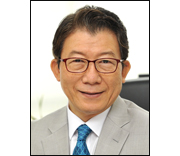-
[March 15. 2016 Korea times] Elevator laws need changing
- Date : 2016.03.21
- Views : 331
Elevator laws need changing
 |
By Jeffrey I. Kim
People living in today's world depend on elevators. Elevators are installed in residential buildings as well as commercial buildings. Some apartment buildings are as high as business buildings. The elevators in high-rise buildings require higher safety standards.
When riding in elevators, passengers sometimes worry about it crashing. They may remember an action movie where the good guy gets in an elevator, but the bad guy has damaged the cables and the elevator falls down to the bottom at speed.
However, the probability of an elevator crash is fairly low because of technological advancements. Multiple safety features are built into elevator-operating systems. Elisha Graves Otis invented a revolutionary safety break in 1852. Since then elevator technology has constantly been developing to increase the level of passenger safety. If an elevator's hoisting rope breaks, a mechanical braking system kicks in with racks at the sides of the elevator shaft and it stops the elevator car from sliding down.
All elevators have between four and eight cables. Each cable is made from several lengths of steel material wound around one another and inspectors regularly check them for wear and tear. If one cable snapped, the remaining cables would hold the elevator car up. Even if several steel ropes broke and if the pawls do not work with the racks at the elevator shaft, the elevator car would not plummet to the ground. This is because the falling elevator car would compress the air at the bottom of the shaft and slow down the elevator significantly. In addition, most cable elevators have a built-in shock absorber at the bottom of the shaft and this would cushion the impact thereby saving passengers from fatal injuries.
There is another critical safety feature, called a counterweight. The counterweight hangs on the other end of the elevator ropes. It weighs about the same as the car filled to 40 percent capacity. This means that when the car is 40 percent full, the counterweight and the car are perfectly balanced. When the elevator descends, the counterweight is pulled up. So the falling car slows down.
Nevertheless, passengers locked in a dark and suspended elevator will suffer until they are saved. Deadly elevator accidents occur not because of the breaking of the steel ropes but because of the carelessness of passengers. Leaning against elevator doors by passengers and rough playing by children inside, can cause passengers to fall out of the elevator, thus falling down to the bottom of the elevator shaft.
There are internationally renowned elevator companies that do business in Korea and they complain about the inappropriate laws and rules governing the business of providing maintenance service for residence elevators. They are governed by both the Elevator Facilities Safety Management Act of the Ministry of Public Safety and Security (MPSS) and the Housing Management Act of the Ministry of Land, Infrastructure, and Transport (MLIT).
On Feb. 18, the Office of the Foreign Investment Ombudsman organized a foreign investors meeting where the Minister of Trade, Industry, and Energy directly heard their grievances. One notable grievance was that the residence elevator laws are too restrictive. The MLIT tries to keep elevator maintenance costs at an unreasonably low level whereas the MPSS regulates the technical requirements to ensure public safety. As a result, foreign elevator companies face limited market access and they feel sorry to observe the government trying to lower elevator-operating costs at the expense of safety.
In reforming the residence-elevator-related laws, I suggest the government authorities take heed of the following: (1) The MLIT's price control will not work; (2) the maintenance-service market for high-tech elevators and the market for low-tech elevators would be considered two separated markets. Then this will make both the high-tech and low-tech companies coexist in the elevator maintenance service market; (3) the MPSS may set two minimum safety standards for the two markets; (4) the government authorities should take into account that as people's wealth increases, they want to upgrade their safety level of elevators; and (5) the government should publicize the information of the elevator maintenance costs and the level of elevator safety.
Jeffrey I. Kim is a foreign investment ombudsman, a presidentially appointed troubleshooter for investors and entrepreneurs from overseas. He earned a Ph.D. in economics at the University of Chicago and taught at the University of Colorado, Boulder, and Sungkyunkwan University.
Link : http://www.koreatimes.co.kr/www/news/nation/2016/02/197_197631.html










